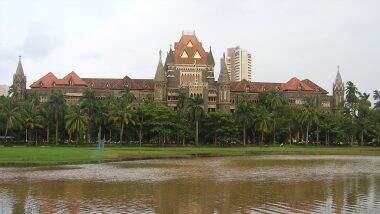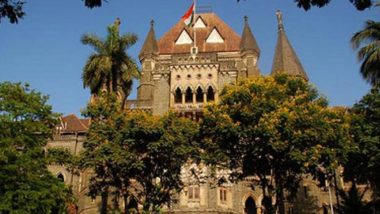Mumbai, December 9: The Bombay High Court on Friday permitted the National High Speed Rail Corporation (NHSRCL) to cut around 20,000 mangrove trees in the city and neighbouring districts of Palghar and Thane for the Mumbai-Ahmedabad bullet train project. A division bench of Chief Justice Dipankar Datta and Justice Abhay Ahuja allowed the plea filed by the NHSRCL seeking permission to cut the mangrove trees. As per a 2018 order of the high court, there exists a "total freeze" on the destruction of mangroves across the state and permission has to be sought from the high court each time an authority wishes to fell mangroves for any public project.
As per the said order, a 50 m buffer zone must be created around the area that hosts the mangroves and no construction activity or dumping of debris can be permitted within this buffer zone. Bullet Train: Ministry of Railway Shares Video of Successful Completion of First 1 KM of Continuous Viaduct; Watch Video
In its petition filed in 2020, the NHSRCL had assured the court it would plant five times the total mangrove trees that were earlier proposed to be felled and the number would not be reduced for the same. Mumbai-Ahmedabad Bullet Train: No Time-Frame Fixed To Complete Project, Reveals RTI
The plea was opposed by 'Bombay Environmental Action Group', an NGO, on the ground that no study was undertaken about the survival rate of saplings to be planted as a compensatory measure and the Environmental Impact Assessment report for felling trees has not been provided.
The NHSRCL had denied the objections raised by the NGO and claimed that it had availed required approvals for the felling of trees for the project of public importance and would compensate the loss occurring due to the same by planting of saplings as directed.
The 508-km high speed rail corridor between Ahmedabad and Mumbai is expected to cut travel time from six-and-a-half hours to two-and-a-half hours.
The bullet train project received a major push after the Eknath Shinde-Bharatiya Janata Party (BJP) government came to power in June this year. The dispensation has given all approvals for this project, the foundation of which was laid by Prime Minister Narendra Modi in September 2017.













 Quickly
Quickly


















